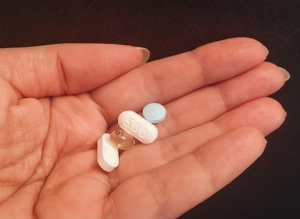New diet and exercise program helps people with type 2 diabetes cut medication
Published 16 Feb 2016

Even this are news from Australia, we can see how medicine is advancing and take some ideas for our own lifestyle.
ADELAIDE researchers have developed a diet and exercise program the CSIRO says has proven highly effective in reducing the burden of type 2 diabetes, including an average 40 per cent reduction in medication levels.
ADELAIDE researchers have developed a diet and exercise program the CSIRO says has proven highly effective in reducing the burden of type 2 diabetes, including an average 40 per cent reduction in medication levels.
Some people in the trial were able to cease using their medication.
The diet is very low in carbohydrates and higher in protein and unsaturated fats.
The program is based on findings from a $1.3 million National Health and Medical Research Council funded study which compared the low carbohydrate eating pattern with the best practice approach of managing type 2 diabetes with a high-unrefined carbohydrate, low fat diet.
Principal research scientist at the CSIRO Associate Professor Grant Brinkworth said the results were groundbreaking.
“Health professionals have been divided over the best dietary approach for managing type 2 diabetes, and the ongoing uncertainty is a hotly debated topic among clinicians and researchers,” he said.
“The most amazing benefit of the low carbohydrate diet was the reduction in the patient’s medication levels, which was more than double the amount than the volunteers following the lifestyle program with the high-carbohydrate diet plan.
“Some of the participants managed to cease their medications altogether, and many described the study as life changing.
“This research shows traditional dietary approaches for managing type 2 diabetes could be outdated — we really need to review the current dietary guidelines if we are serious about using the latest scientific evidence to reduce the impact of the disease.”
The two-year research program was a collaboration between CSIRO, the University of Adelaide, Flinders University and the University of South Australia, with the exercise program carried out at local fitness centres.
Professor Campbell Thompson, from the University of Adelaide, said the very low carbohydrate diet presented greater improvements in the blood cholesterol profile by increasing the levels of ‘good’ (HDL) cholesterol and decreasing triglyceride levels to a greater extent than the traditional high carbohydrate, low fat diet approach.
“Both diets achieved similar reductions in ‘bad’ (LDL) cholesterol levels, often a concern with some low carbohydrate diets,” he said.
“The variability of blood glucose levels throughout the day is also emerging as a strong independent risk factor for diabetes complications. In our study the very low carbohydrate diet was more effective in reducing the number and levels of blood glucose spikes and dips, flattening the blood glucose profile over a 24-hour period.”
More than 350 million people worldwide have Type 2 diabetes, and with obesity a major risk factor, the number is expected to grow.
An estimated 800,000 Australian adults have type 2 diabetes with many more undiagnosed, with around $490 million spent on related medications in 2008-09.
What do you think? Remember that sharing helps everyone to cope and prevent
What do you think? Remember that sharing helps everyone to cope and prevent
The Advertiser
Comments
You will also like

Diabetes: Discrimination, Professional Life, Plan Ahead... What do patients say?
9 Nov 2018 • 13 comments
Read the article

 Facebook
Facebook Twitter
Twitter

